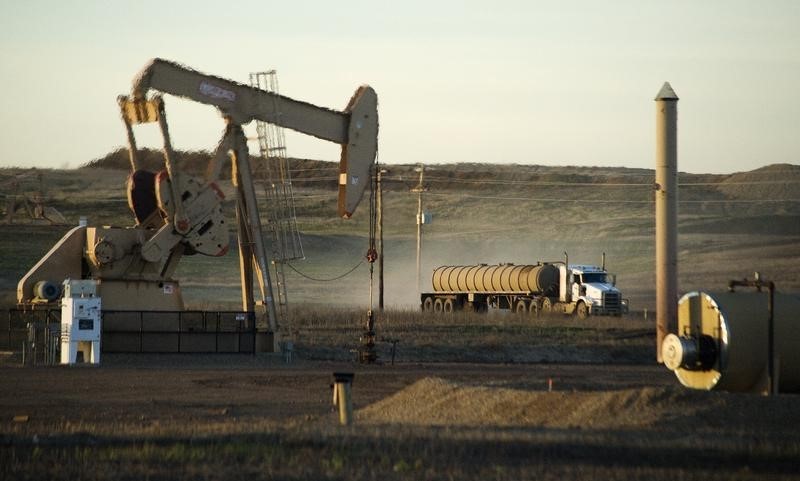Investing.com– Oil prices fell further on Friday after wiping out all of their gains for the week, as disappointing economic signals from China and concerns over a potential U.S. recession cast doubts over crude demand this year.
Crude prices logged steep losses over the past two sessions as weak and data from China saw markets further question the pace of a post-COVID economic rebound in the country.
The weak data largely outweighed a forecast from the Organization of Petroleum Exporting Countries that China will drive oil demand to record highs this year. The OPEC slightly hiked its forecast for oil demand this year in its monthly report.
fell 0.3% to $74.78 a barrel, while fell 0.1% to $70.81 a barrel by 22:06 ET (02:06 GMT). Both contracts were trading marginally lower for the week after notching losses over the past two weeks.
Signs of a in the U.S., coupled with renewed fears of a banking crisis in the country also weighed on oil markets.
Broader market sentiment remained on edge amid continued discussions over raising the U.S. debt limit, as a June 1 deadline for a U.S. default approaches. But a Friday meeting between President Joe Biden and Republican policymakers now appeared to be postponed to next week, media reports showed.
A sharp recovery in the also dented oil markets, as signs that U.S. saw markets largely pare their expectations for any interest rate cuts by the Federal Reserve this year.
A stronger dollar makes crude more expensive for international buyers, denting demand.
U.S. inventory data provided mixed cues to markets this week, as steady drawdowns from the Strategic Petroleum Reserve (SPR) saw inventories unexpectedly rise over the past week.
But steep declines in gasoline and distillate inventories indicated that U.S. fuel demand was picking up towards the summer season. Still, this provided only limited upside for prices.
Speculation over the U.S. potentially refilling the SPR offered some support to oil prices this week, although the White House has so far provided scant cues on when it plans to begin buying crude.
Read the full article here


